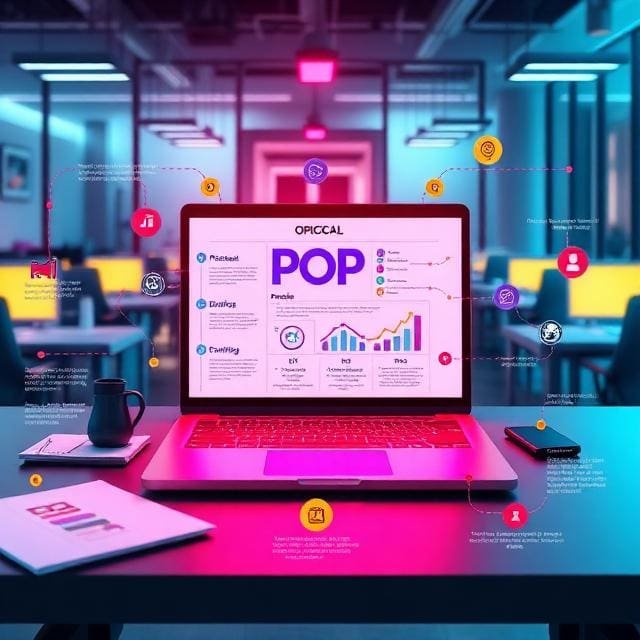The rental property industry is undergoing rapid change, driven by new technological innovations, shifting economic dynamics, and evolving tenant demands. With the passage of 2025, the industry is set to experience massive changes, and it is therefore essential that property investors, landlords, and property managers stay ahead of the curve. Trends to follow in the rental property business in 2025, which we will explore in this article, include new technologies, market dynamics, and the ability to adapt to the evolving nature of the real estate industry.
The Smart Home Technologies are becoming the Norm.
The integration of smart home technologies is one of the most prominent and dynamic developments anticipated to occur in the rental property industry in 2025. As tenants become more efficient in their energy consumption, property owners who invest in smart solutions technology will gain a competitive advantage. Smart technology, such as smart thermostats, smart locks, efficient lighting, and security cameras, is becoming a key characteristic of rentals.
The technologies can enhance the tenant experience, lower the expenses incurred by landlords, and increase property values. Smart home integration is not merely a luxury-based trend, but rather a trend aimed at satisfying tenants’ expectations of convenience, safety, and sustainability. The smart home market in rental properties is expected to grow in 2025, making it a significant investment opportunity for property owners.
Working at Home and the Rental Revision.
The 2025 destiny of the rental property business is conditioned by the emergence of remote working, which was accelerated by the pandemic. Many workers are no longer office-bound and desire less structured ways of living. This has resulted in higher demand for rented properties in suburban areas and a slight increase in highly urbanized areas.
Real estate: this trend presents opportunities in sparsely populated areas. Homes with available home offices are also in high demand, as remote work is here to stay among most employees. By 2025, this shift in demand will be instrumental for property owners, who will seek the right markets and achieve maximum rental incomes.

Eco-Friendly and Sustainable Rental Properties.
Sustainability has ceased being a mere buzzword and has become a crucial consideration in the property rental business as of 2025. Alongside growing awareness of the climate change issue and its environmental impacts, tenants are increasingly seeking greener housing options. It is also in high demand, featuring solar panels, rainwater harvesting systems, energy-efficient appliances, and sustainable building materials.
To property owners, green investing in buildings and investmentally friendly rental properties would not only help minimize costs (such as power charges) but also attract greener renters who are not willing to pay for a more sustainable living environment. With the growing demand for green rental apartments, individuals who adopt these changes will be well-positioned to capitalize on the trend.
The Surge of Short-Term Rentals.
Vrbo, Booking.com, and Airbnb are short-term rental platforms that continue to pose a threat to the rental property segment. By 2025, short-term rentals are expected to become more profitable than ever, particularly in tourist hotspots. It is also a trend that is attracting early investors, as well as first-time buyers, who seek to achieve higher rental returns with vacation properties.
Nevertheless, the increased popularity of short-term rentals requires property owners to familiarize themselves with local rules and zoning codes. Most cities are becoming increasingly stringent about short-term rentals, either requiring registration of their properties or restricting the number of rental days. These regulations will be key to succeeding in the short-term rental market in 2025, and it will be essential to understand these requirements and adapt your property rental business accordingly.
Robotization and Property Management Software.
Reverse engineering and renting out properties are becoming more efficient with the growing number of property management software and automation tools. In 2025, the use of digital platforms is expected to increase, with an increasing number of property owners and managers relying on them to streamline their operations. The tools may facilitate automated rent collection and maintenance requests, as well as communication with tenants.
Financial tracking, reporting, and general operational efficiency are also better tracked with the use of property management software. For landlords with multiple properties, these technologies will save them time and reduce the complexities associated with management, making them a wise investment for those looking to grow their rental property business.
The Rental Control and Affordable Housing.
As the affordability of housing is an increasingly pressing issue, rent control legislation is likely to change in 2025. Rent control policies are being implemented or extended in many cities to cushion tenants against rising rents, while also aiming to create more affordable housing options.
For property investors, it is crucial to stay informed about the rules governing rent controls. It won’t be easy to balance the desire to provide low-cost housing with profitability, and this will become more challenging as the rental market becomes increasingly competitive. To overcome these changes, property owners will need to remain flexible and stay informed about the local market.
The Tenant Experience Will Be put in the limelight.
As of 2025, the quality of experience experienced by tenants will be a critical element of the rental property business. The tenants have never had more options than they do now, and landlords and property managers need to be more concerned about providing tenants with outstanding service to retain them and decrease the vacancy rate. These consist of timely repairs, clear communication, and provision of facilities to the tenants to improve their experience.
Establishing a positive relationship with tenants and ensuring their occupancy process is pleasant and hassle-free will result in increased tenant satisfaction, retention, and reduced turnover. Property managers will be required to use tenant management software to enhance communication and improve service delivery.
Conclusion
In 2025, the rental property business is expected to undergo a significant transformation due to advancements in technology, changing tenant needs, and an increasing emphasis on sustainability. With the emergence of smart home technologies and eco-friendly properties, the rise of short-term rentals and automation means that property owners and investors must be informed and adaptable to thrive in this new environment.
Adopting such trends, whether by modernizing your house with smart gadgets, addressing the increased demand for green living, or embracing technology to simplify business management, will be essential in remaining relevant in the rental property business. In this way, it will be possible to ensure that your investment is profitable in the future.





